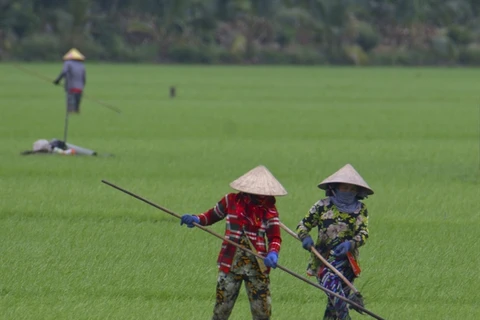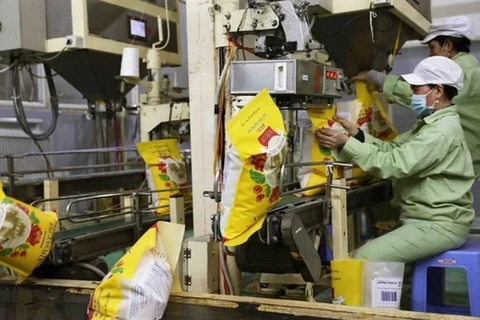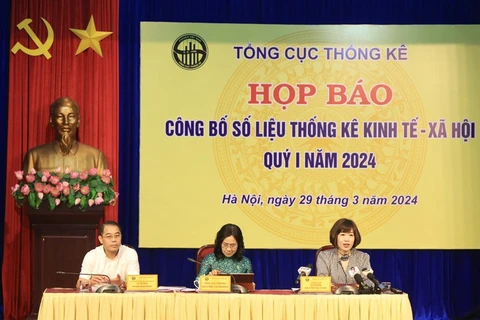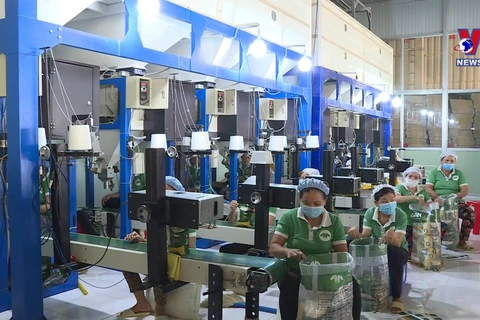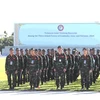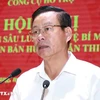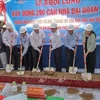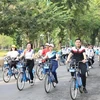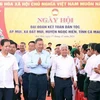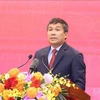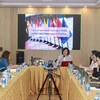 Farmers in Nga Nam, Soc Trang province, are harvesting the winter-spring rice crop for 2023-2024. (Photo: VNA)
Farmers in Nga Nam, Soc Trang province, are harvesting the winter-spring rice crop for 2023-2024. (Photo: VNA) The information was released at an April 2 conference, which was held in the delta city of Can Tho to kick off the capacity-building plan serving the project.
As heard at the event, the second phase of the project between 2024 and 2030 is set to train public personnel involved in farming promotion work within communities, technical and managerial personnel of 620 participating cooperatives and cooperative groups, and farmers.
This year, the Ministry of Agriculture and Rural Development’s Department of Cooperative and Rural Development will develop 12 training manuals tailored for various target groups, accompanied by handbooks and usage guidelines.
Additionally, specialised agencies will organise 12 Training of Trainers (ToT) workshops aimed at equipping participants with skills and knowledge in innovation. Notably, the training will be completed for 2,000 managerial and technical staff from 400 agricultural cooperatives partaking in the Vietnam Sustainable Agriculture Transformation Project (VnSAT). Their training primarily focuses on emission-reducing farming practices and the Measuring, Reporting, and Verification method to access greenhouse gas reduction activities.
Le Quoc Thanh, General Director of the National Agricultural Extension Centre, stressed that the 1-million-ha rice project will enhance the capacity of the entire system, involving all stakeholders in the value chain. In addition to technical training, it aims to provide courses on emission-reducing farming practices.
Deputy Minister of Agriculture and Rural Development Tran Thanh Nam specified that the two main target groups in this capacity-building plan are cooperative members and agricultural extension officers, especially at grassroots level./.
VNA
